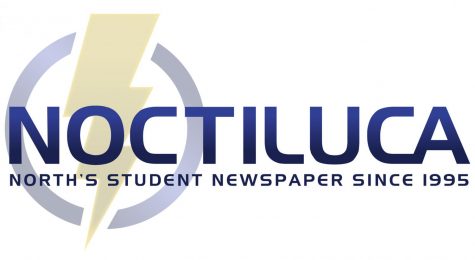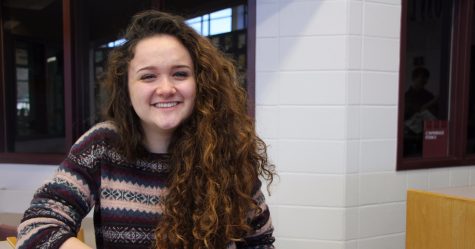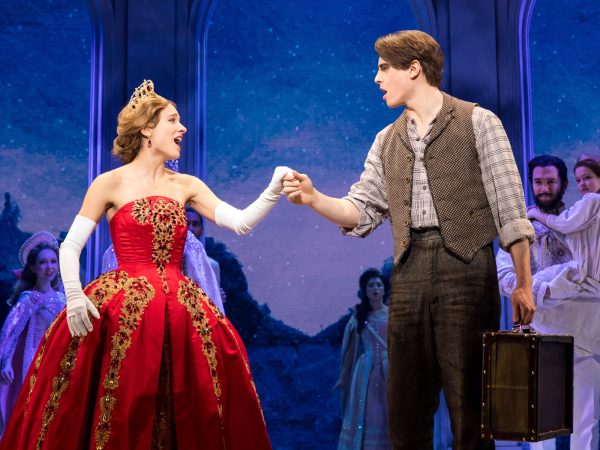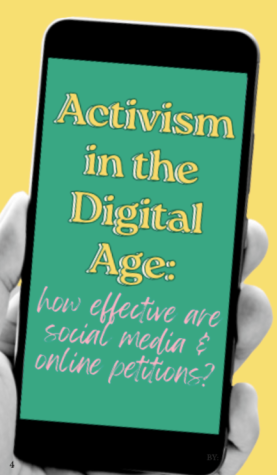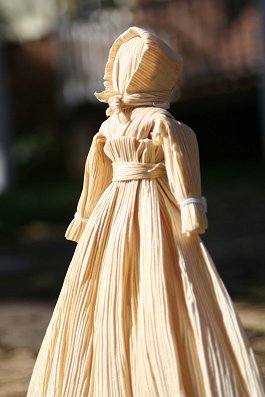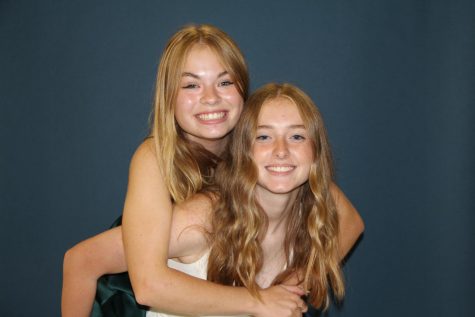Celebrating World Hijab Day
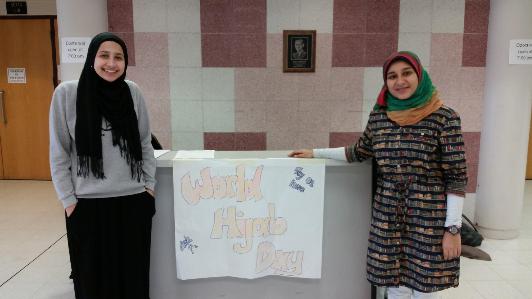
Appleton North sophomore Sara Zaidan, pictured left, and Appleton North freshman Salma Abdel-Azim, pictured left, help North learn the importance of World Hijab Day.
February 1, 2016
February 1, 2016 marks the the fourth annual celebration of World Hijab Day. The day, founded originally by Nazma Khan after receiving negative criticisms regarding her appearance, is a global event that marks the solidarity of Muslim women by giving non-Hijabi women the chance to experience wearing a hijab.
But first, what is a hijab? “A hijab is the head scarf that Muslim women wear,” clarifies Appleton North sophomore Sara Zaidan, who wears a hijab regularly. “Muslim women wear the hijab because they believe that God has instructed them to do so. The hijab is worn for modesty, to show that a girl is more than just her
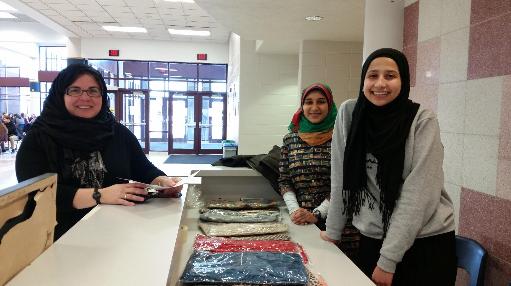
Spanish language teacher Mrs. Tesch tries on a hijab during sixth period lunch.
beauty. Hijab is not only covering the head, but dressing modestly as well.” Thus, the term “Hijabi” refers to women who wear the hijab.
Zaidan, along with Appleton North freshman Salma Abdel-Azim, helped orchestrate a celebration of World Hijab Day at Appleton North High School during fourth, fifth, and sixth period lunch hours. Behind a booth appropriately titled “World Hijab Day,” Zaidan and Abdel-Azim set a sprawl of brightly colored, variably patterned head scarfs on display for non-hijabi students and staff to try on. This was the first year that World Hijab Day was recognized at North.
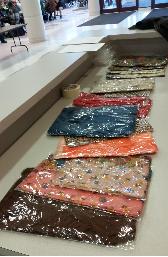
Hijabs of different varieties were provided by the World Hijab Day booth and given to whomever wanted to try them on.
“The importance of World Hijab Day is to bring awareness to the actual meaning of hijab and to eliminate its many misinterpretations,” adds Zaidan. “It is recognized to encourage Muslim and non-Muslim women alike to try to wear the hijab for a day so they can experience what Hijabis experience throughout their daily lives.”
Also included at their stand were several common facts about wearing a hijab, like:
“Muslim women wear the hijab is to express their faith and publicly show that they are proud to be Muslims.”
“Muslim women don’t need to wear hijab in front of other women, direct family members, or their spouses.”
A few misconceptions and frequently asked questions were additionally answered by Zaidan and Abdel-Azim, with one of the most popular being:
“Are hijabs oppressive?”
Their response:
“Although wearing hijab is a personal choice Muslim women make, some people associate hijab with oppression. Most women who wear hijab are not forced or oppressed to wear it. In fact, wearing hijab is an empowering choice many Muslim women make. As stated by a Muslim woman, Hanna Yusuf, ‘In a world where a woman’s value is often reduced to her sexual allure, what could be more empowering than rejecting that notion?'”
Another misunderstanding, or at least misrepresentation, that hijabis hear all too often are the association people make with hijabs to acts of terrorism or terrorist groups. As Zaidan puts it, “Some people also think of terrorism when they see the hijab because of the media’s depiction of Muslims. Neither the hijab nor Islam in general have anything to do with terrorism. At all.”
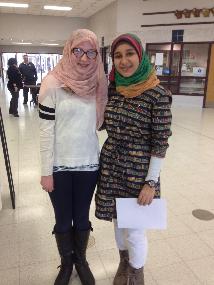
Freshman Zoe Plzak wearing a hijab with freshman Salma Abdel-Azim, one of the World Hijab Day demonstrators.
Zaidan and Abdel-Azim stated conclusively, “Probably one of the biggest misconceptions about the hijab is that all Muslim women wear it. Wearing hijab is mandatory in Islam, but again, wearing hijab is a personal choice. There are Muslim women who have not decided to take that step yet, for their own personal reasons.”
Finally, students, staff, and members of the ANHS community are encouraged to learn more about the hijab as well as other
aspects of Muslim culture by researching information, asking questions, and striking up a conversation with some of the Hijabi students currently attending Appleton North.
For more information regarding the day itself, visit http://worldhijabday.com/ or follow World Hijab Day on Facebook or on Twitter @WorldHijabDay.
Happy World Hijab Day!

